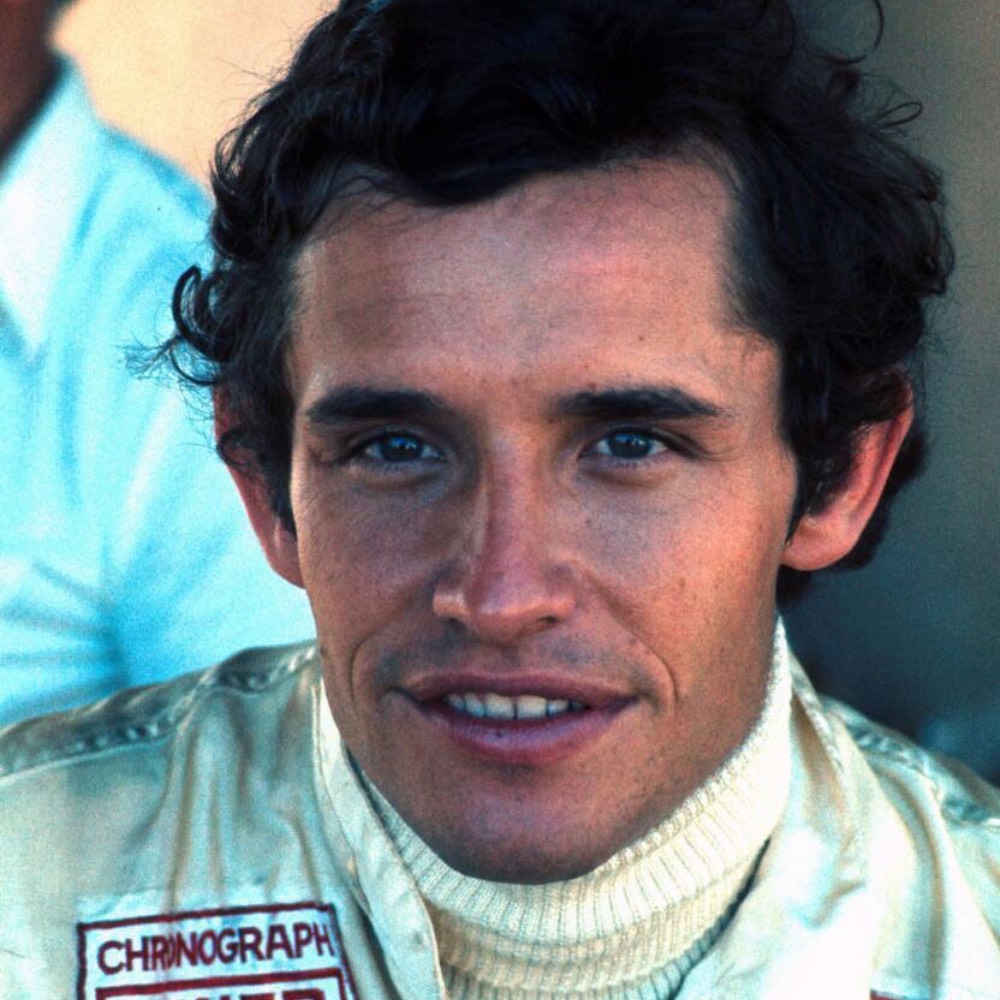
Jacky Ickx
Career Statistics
Biography
Jacques Bernard Edmon Martin Henri "Jacky" Ickx (born 1 January 1945) is a Belgian racing driver who competed in Formula One from 1966 to 1979, renowned as one of motorsport's most versatile and successful all-round talents whose eight Formula One Grand Prix victories represent only a fraction of his achievements across endurance racing, rallying, and sports cars, with his record six victories at the 24 Hours of Le Mans earning him the title "Monsieur Le Mans" and establishing him as one of endurance racing's all-time greats. Born in Brussels, Belgium, Ickx grew up in a motorsport family—his father Jacques Ickx Sr. was a motoring journalist who introduced young Jacky to racing from an early age.
Ickx began competing in motorcycle trials and road racing as a teenager, winning multiple Belgian and European motorcycle trials championships before transitioning to car racing in his early twenties, bringing exceptional throttle control and mechanical sympathy developed on two wheels that would define his smooth, precise driving style. His four-wheel career began in touring cars and sports cars before he made his Formula One debut at the 1966 German Grand Prix driving a Matra, beginning a 14-season F1 career that would see him race for Matra, Cooper, Ferrari, Brabham, McLaren, Williams, Lotus, and Ligier. Ickx's breakthrough came with Ferrari, where he spent the majority of his F1 career (1968-1973) and became the Scuderia's lead driver.
His maiden Formula One victory came at the 1968 French Grand Prix at Rouen-Les-Essarts in torrential rain—conditions where Ickx's exceptional wet-weather mastery gave him a decisive advantage, lapping the entire field except teammate Chris Amon in a dominant display that announced him as one of the grid's most talented drivers. His reputation as a wet-weather specialist was further cemented by brilliant victories at the rain-soaked 1969 German Grand Prix at the Nürburgring, where his intimate knowledge of the treacherous 14-mile Nordschleife circuit and fearless commitment in impossible conditions made him virtually unbeatable when rain fell on the Green Hell. The 1970 season brought Ickx his closest approach to the World Championship when he finished runner-up to Jochen Rindt, the Austrian who posthumously won the title after his fatal accident at Monza.
Ickx won three races that season (Austria, Canada, Mexico) and might have captured the championship had Rindt lived, but the tragedy meant Ickx's championship challenge became secondary to mourning the sport's loss. He finished runner-up again in 1979 with Ferrari alongside Clay Regazzoni, winning in Austria, Canada, and Spain, but the dominant Lotus 72 of Emerson Fittipaldi proved too strong across the season. Despite his eight Grand Prix victories and 25 podiums, Ickx never won the Formula One World Championship—a fact often attributed to his greater focus on sports car racing, where he achieved his most enduring success. Ickx became synonymous with the 24 Hours of Le Mans, winning the legendary endurance race a record six times (1969, 1975, 1976, 1977, 1981, 1982), driving for Ford, Mirage, and Porsche across different eras and regulations.
His 1969 Le Mans victory remains one of the race's most iconic, when he famously walked slowly across the track to his Ford GT40 at the traditional Le Mans start rather than running like other drivers, calmly fastening his safety belts while others roared away. Ickx's safety protest challenged the dangerous tradition of drivers starting races without properly securing their harnesses, and his methodical approach—combined with his subsequent victory after multiple rivals crashed due to improperly fastened belts—led to the abolition of the running Le Mans start from 1970 onward, making Ickx a pioneer of racing safety. His 1977 Le Mans victory is considered his personal favorite and one of endurance racing's greatest drives, when he co-drove a Porsche 936 with Jürgen Barth and Hurley Haywood to victory after multiple dramatic battles.
Ickx's six Le Mans wins stood as the all-time record for 26 years until Tom Kristensen won his seventh in 2005, and Ickx remains second on the all-time Le Mans winners list. He won two FIA World Sports Car Championships (1982, 1983) and the Can-Am Championship (1979), demonstrating his versatility across different racing disciplines. In rallying, Ickx competed in the grueling Paris-Dakar Rally, winning the event in 1983 driving a Mercedes-Benz 280 GE alongside co-driver Claude Brasseur—a remarkable achievement that showcased his adaptability to completely different forms of motorsport requiring navigation, endurance, and mechanical resilience rather than outright speed. After retiring from regular competition, Ickx remained active in historic motorsport and became Race Director for the FIA Formula One World Championship, bringing his decades of experience to improving safety and sporting regulations.
Now in his 80s, Ickx regularly appears at historic racing events and remains one of Belgium's most celebrated sportsmen. Jacky Ickx's legacy is that of motorsport's ultimate all-rounder—a driver who excelled in Formula One but achieved immortality in endurance racing, whose smooth style and mechanical sympathy made him fast in any car on any circuit, whose six Le Mans victories established him as one of endurance racing's greatest champions, and whose safety advocacy at the 1969 Le Mans start saved countless lives by ending the dangerous running start tradition. He remains "Monsieur Le Mans," a title befitting one of racing's most versatile and successful legends.